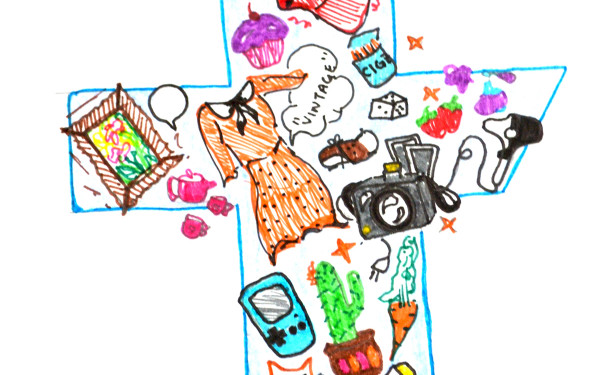Proprietors of Our Privacy
Giving Facebook Too Much Face
On Oct. 6, Facebook held a press event at its headquarters in Palo Alto, CA where Mark Zuckerberg and his team introduced some new tools: Download Your Information, a feature that allows users to transfer their data in a .zip file, and a revamped version of Facebook Groups that allow group chats, e-mail lists and document sharing.
Zuckerberg seems to think that these things are going to address “the biggest problems with social networking” because they allow us to interact beyond an online, one-on-one basis.
I disagree. The biggest problem with social networking these days is, well, the act of social networking. Let me explain.
The Obvious
Facebook is the greatest time-waster ever. Enough said.
The Scary
I excitedly joined Facebook during the glory days in Spring 2005, when it was a fun and easy way to stay in touch with old friends and an innovative way to connect with new friends in university.
It was simple: there were no status updates, news feeds or advertisements. There were no fan pages, and definitely no parents.
Zuckerberg’s dorm room starup went downhill when it became a highly profitable company, since the cornerstone of any for-profit company is expansion. In Facebook’s case, it began with letting in high school kids and it wasn’t long before your grandmother had a page.
All the while, the Facebook team kept adding new ways for us to share our lives and spend more time on their site. A number of these changes were met with resistance, as the program was called out for data-mining and its use as a tool for identity theft. But despite the controversies over the years, Facebook maintains its following—there are over 500 million people using it today.
For all the press releases and posturing, it seems security and consumer satisfaction have never been serious priorities for Facebook—and you can expect this behaviour to continue. The article “How Facebook is Redefining Privacy” by Dan Fletcher in Time Magazine this spring made it pretty clear that the modus operandi of Facebook is to get us sharing as much as possible so that they can someday control the universe.
In playing all these privacy games with its users, Facebook has set itself up as a free Big Brother service for our governments. If you are like me and you disagree with the state on a number of issues, you have to watch what you say online. Facebook will give your information to anyone, be it greedy capitalists or their enablers in the government. I hate having to jump out of the way when someone pulls out a digital camera at an anarchist bookstore event, but I will.
The Subtle
We have essentially become our own paparazzi, which has a significant cultural impact.
Ashley Parker touches on this phenomenon briefly in the New York Times Magazine article “All the Obama 20-Somethings” about the young folks working in the Obama Administration who have to be extra guarded in their personal life, so as not to embarrass their bosses in the White House.
Professional people, and those aspiring to work in a professional setting, can’t risk dancing on top of a table at a house party or making out with a co-worker at a nightclub because photos of it might end up on someone’s Facebook page. As such, the site has slowly but surely contributed to a decay of wild abandon in our generation.
Then there’s the flip side of that coin.
As the shallow and desperate among us become more aware of Facebook’s role as a pseudo-media outlet, some might see an opportunity for temporary celebrity. Alongside YouTube, this aspect of Facebook has helped advance what has been called a “performative” culture.
I’m talking about that person who jumps into your pictures and videos, or broadcasts every detail of their life via a steady stream of Status Updates, Wall Posts and poorly-written Notes.
Use It, Don’t Abuse It
It’s easy to forget that technology is, at its essence, a tool. That’s probably because a lot more money can be made when it’s used as a toy, as another commodity to profit off of.
There’s an army of start-ups vying for funding every day that can attest to this and surely David Fincher’s new film The Social Network will inspire even more.
The Return
It came to my attention that an effective 21st century journalist must be on Facebook. The ubiquitous social networking site has replaced the white pages and I cannot afford to deny myself access to the most detailed digital directory available.
I was forced to reactivate my account after a very pleasant six-month hiatus, but no, I will not help you grow potatoes on your fake farm, nor will I join your Justin Bieber fan page. If I want to join a cause, I will attend a meeting and get involved.
I privatized my profile, but not because I’m a hermit. If you want to shoot the shit and get to know each other I’m always up for a tea or a round of beers. I just don’t trust the jokers who run Facebook and I worry about where social media is taking us.
When I deleted my Facebook, they prompted me to give a reason for my choice. I clicked on “Other” and in the blank space, I wrote: “Our technological development has dangerously surpassed our moral development.”
Don’t let the screen suck out your soul.This article originally appeared in Volume 31, Issue 09, published October 12, 2010.






_600_375_90_s_c1.jpg)
